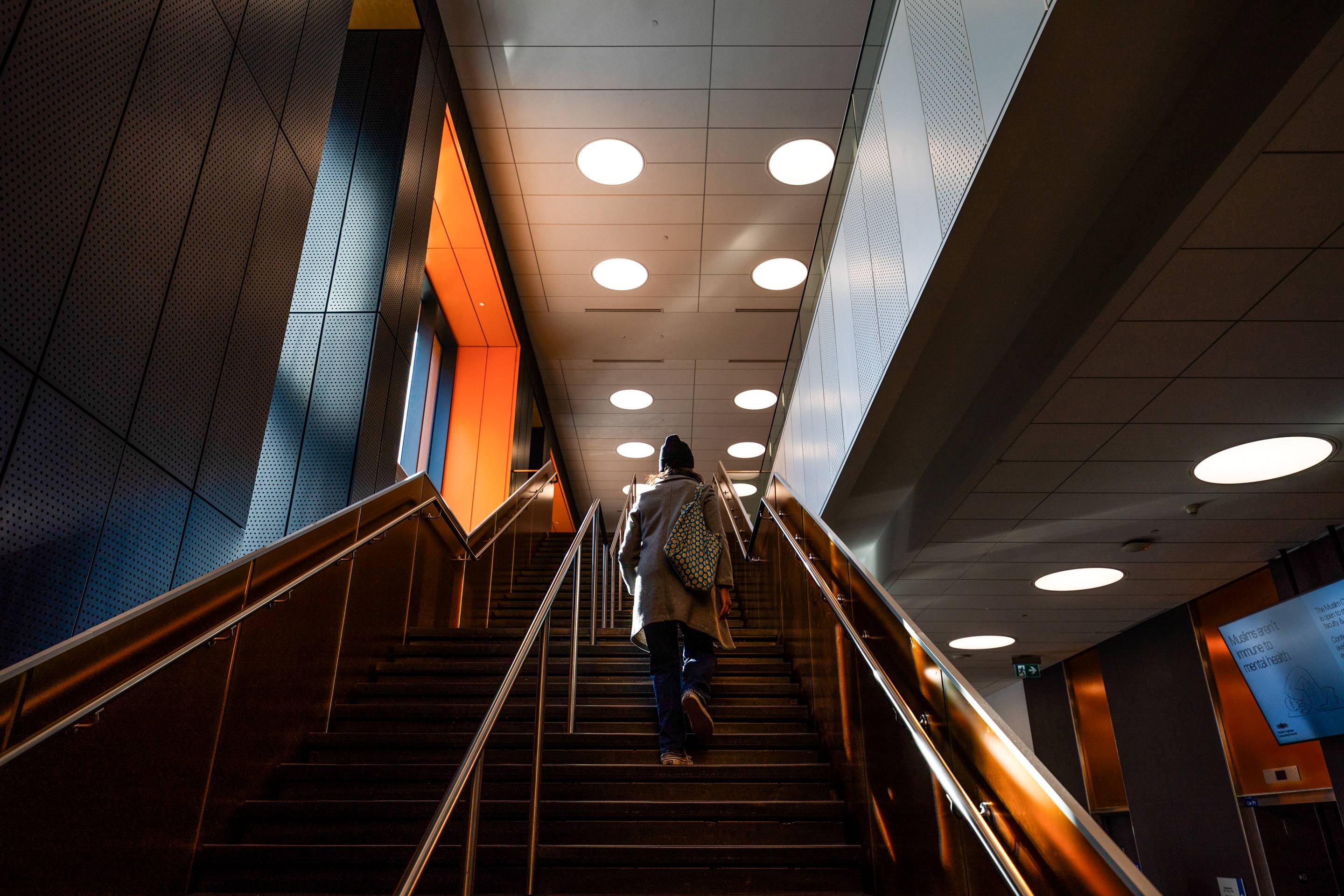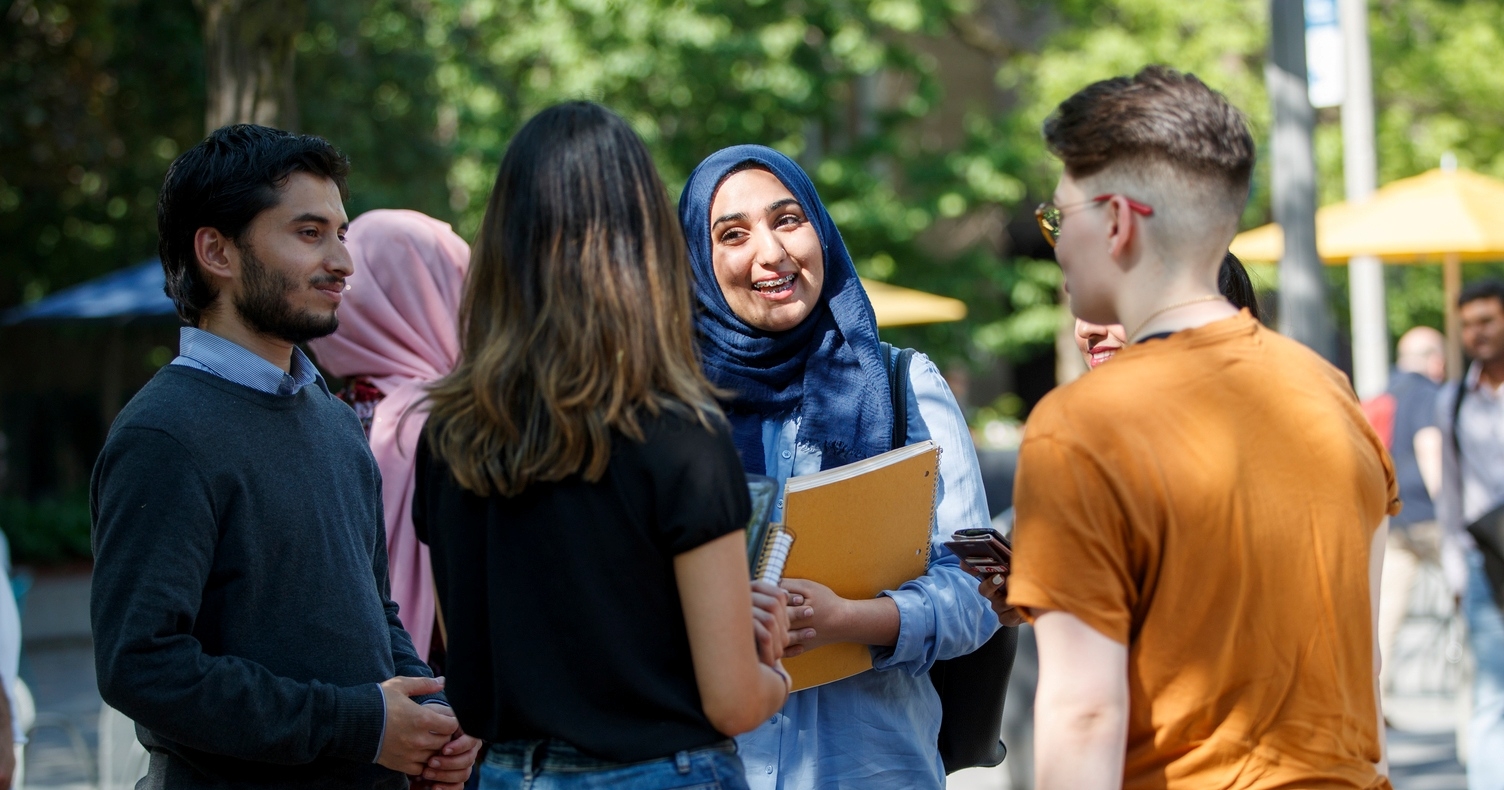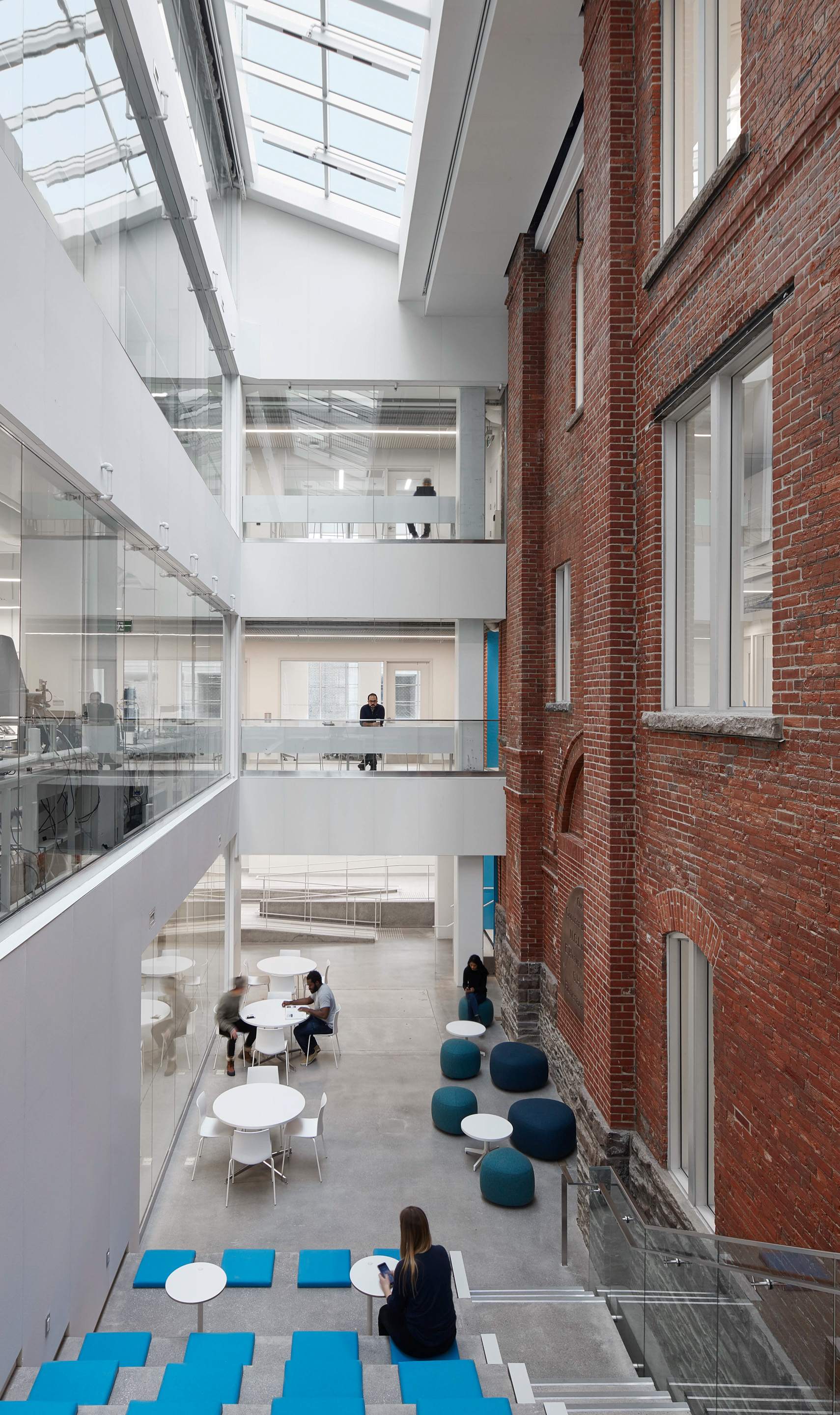Foundation of the plan
Setting the stage
At Toronto Metropolitan University (TMU) we are guided by our Strategic Vision 2020-2030, a bold plan to be intentionally inclusive and strategically nimble with a commitment to tackle real-world problems, forge strong partnerships and foster innovative solutions.
The 2025–2030 Academic Plan aligns seamlessly with the strategic vision as well as with the university’s suite of plans, including but not limited to, the following:
Serving as a comprehensive blueprint, these plans collectively advance our mission and affirm our commitment to innovation, collaboration and positive change, ensuring that TMU remains at the forefront of academic excellence and societal impact. Together, they foster a thriving, sustainable and inclusive academic environment.
The academic plan also furthers our commitments under the Strategic Mandate Agreement, an agreement between the Ministry of Colleges and Universities and TMU that outlines our priorities, identifies areas of strength and focus and sets performance metrics.

In the past five years, TMU has demonstrated its commitment to programming that reflects student demand and the needs of tomorrow. Our programs and curricula directly respond to student and societal needs, employment opportunities and interest from potential employers.
Since 2020, we have launched:
3
new undergraduate programs (including 1 new law program)
8
new graduate programs (4 master’s and 4 PhDs)
12
new continuing education certificates, 7 new Curv microcertificates and 28 new Curv microcredentials

The Lincoln Alexander School of Law was founded on a vision for education that drives the legal profession to be more accessible, equitable and technologically advanced. Before the first cohort of law school graduates walked the stage to collect their diplomas, TMU began work on its School of Medicine. With a focus on the primary care needs of diverse and medically underserved populations, the School of Medicine is committed to graduating, outstanding, compassionate, respectful, future-ready clinicians who provide outstanding holistic health care and lead in health system transformation and innovation.
Since 2020, TMU has taken great strides to advance equity, promote intentional diversity and create an inclusive campus. These significant achievements have included:
Truth and Reconciliation
Installed new public art and placemaking initiatives, built a new Indigenous TMU website, hired a Manager of Indigenous Events and Special Projects, implemented an Indigenous Wellbeing and Cultural Practice Leave and created new funding programs to support Indigenous scholarly, research and creative (SRC) activities.
Diversity
Expanded the Diversity Self-ID program and was named Canada’s Best Employer for Diversity in 2023 by Forbes.
Standing Strong Task Force
TMU’s Board of Governors committed to addressing all 22 recommendations from the task force.
Confronting anti-Black racism and cultivating Black flourishing
Established the Presidential Implementation Committee to Confront Anti-Black Racism, Postdoctoral Fellowships for Black Scholars, the Black Scholarship Institute, and the Black Initiatives Fund for students, hired a Black Student Support Facilitator and developed a TMU EDI Knowledge and Action Framework.
University renaming
Launched our new name to better reflect our institutional values and address feedback from our community.
Curriculum
Introduced minors in LGBTQ2S+ Studies, Black Studies and Indigenous Thought.
Leadership
Welcomed Indigenous, Black and disability health leads to the School of Medicine and a growing number of faculties have employed Indigenous and Black advisors.
At TMU, our approach to SRC combines excellence and relevance to expand knowledge and understanding of the most important issues facing the world today. Our two Canada Excellence Research Chairs are exploring social, cultural, economic and political factors that influence health and community well-being, as well as innovative and usable insights into migration and post-migration processes.
In addition, our Canada Research Chairs are achieving SRC excellence in areas from engineering and health sciences to humanities and social sciences. In 2023, TMU was awarded $98.6M to lead a migrant integration research program by the Government of Canada through the Canada First Research Excellence Fund. This is the largest research grant the university has ever received, part of the largest federally funded university strategic research initiative in Canadian history and one of only 11 awarded.
Our faculty and students are increasingly participating in significant research partnerships and connecting to broad research networks to address real-world challenges to drive economic growth and improve quality of life for Canadians. Whether it’s developing innovative solutions to pressing environmental issues, informing public policy or enriching cultural life through artistic expression, TMU researchers are making a meaningful difference.


This plan is truly a collaborative effort, shaped by the many rich and engaging conversations held throughout the consultation period, and reflects the diverse perspectives within our TMU community. The first phase of consultations with the community began in fall 2023.
Consultations continued during a second phase in winter/spring 2024. Students, faculty, staff, alumni and external industry and community partners participated in these consultations and are actively helping to shape the future of our institution. Their dedication has reinforced our commitment to a collaborative, transparent and inclusive decision-making process.
1,600+
participants
86
consultations
118
groups consulted
2
town halls
The greatest strength of our institution is our ability to collaborate. With input from every corner of our community, our 2025–2030 Academic Plan puts collaboration into action, enhancing and enriching our learning and teaching, scholarly, research and creative activities that make TMU the bold, supportive and impactful university that it is.

Academic Plan Core Team
Critical to every step of the academic plan process, the 2025-30 Academic Plan Core Team collaborated closely to provide leadership in project management, planning, analysis, strategic communications and content creation.
- Tony Conte, Executive Director, Office of the Provost and Vice-President, Academic
- Alexandra Culcearu, Administrative and Projects Assistant, Office of the Provost and Vice-President, Academic
- Julia Hennessey, Manager, Communications, Office of the Provost and Vice-President, Academic
- Marc Mainguy, Senior Research Analyst, School of Medicine
- Kimberley McCausland, Vice-Provost, University Planning
- Georgina Phillips, Executive Assistant, Office of the Provost and Vice-President, Academic
- Rose Sandino, Director, Projects and Operations, Office of the Provost and Vice-President, Academic
- Johanna VanderMaas, Senior Director, Communications, Central Communications
Academic Plan Advisory Group
As an integral part of the consultation process, the Provost formed an advisory group consisting of select TMU faculty, librarians, staff and students with representation from across the university. The advisory group offered a range of knowledge and experience and provided expertise throughout the academic plan process.
- Naomi Adelson, Professor, School of Occupational and Public Health, Faculty of Community Services and Associate Vice-President, Research and Innovation, Office of the Vice-President, Research and Innovation
- Lamya Amleh, Professor, Department of Civil Engineering, and Program Director, First-Year Engineering Office, Faculty of Engineering and Architectural Science
- David Atkinson, Associate Professor, Department of Geography and Environmental Studies
- Ebrahim Bagheri, Professor, Department of Electrical, Computer, and Biomedical Engineering, Faculty of Engineering and Architectural Science and Canada Research Chair in Social Information Retrieval
- Lisa Barnoff, Associate Professor, School of Social Work and Vice-Dean, Community, Culture and Belonging, School of Medicine
- Joanne Dallaire, Elder and Senior Advisor, Indigenous Relations and Reconciliation
- Dejan Delic, Professor and Chair, Department of Mathematics, Faculty of Science
- Isaac Garcia-Sitton, Executive Director, International Student Enrolment, Education and Inclusion
- Jen Gonzales, Executive Director, Student Affairs
- Murtaza Haider, Professor, School of Business Management, and Associate Dean of Graduate Programs, Ted Rogers School of Management
- Shari Hodges, Interim University Registrar
- Graham Hudson, Professor and Associate Dean, Academic, Lincoln Alexander School of Law
- Stefania Impellizzeri, Associate Professor, Department of Chemistry and Biology, Faculty of Science
- Sean Kheraj, Associate Professor, Department of History, Faculty of Arts and Vice-Provost, Academic
- Kelly Kimberley, Head, Borrowing and Lending Services, and Librarian, TMU Libraries
- Linda Koechli, Dean, The G. Raymond Chang School of Continuing Education
- Carl Kumaradas, Associate Professor, Department of Physics, Faculty of Science and Vice-Provost and Dean, Yeates School of Graduate and Postdoctoral Studies
- Jennifer Martin, Professor, School of Child and Youth Care and Associate Dean, Scholarly, Research and Creative Activity, Faculty of Community Services
- Monica McKay, Director, Indigenous Initiatives, Office of the Vice-President, Equity and Community Inclusion
- Joseph Medaglia, Associate Professor and Chair, School of Fashion, The Creative School
- Kateryna Metersky, Assistant Professor, Daphne Cockwell School of Nursing, Faculty of Community Services
- Michael Mihalicz, Assistant Professor, Department of Entrepreneurship and Strategy, and Indigenous Advisor, Office of the Dean, Ted Rogers School of Management
- Marcia Moshe, Professor, Department of Psychology, Faculty of Arts and Senior Advisor, School of Medicine, Office of the Provost and Vice-President, Academic
- Nima Naghibi, Professor, Department of English, Faculty of Arts
- Caroline O’Brien, Associate Professor and Chair, School of Performance, The Creative School
- Donatus Oguamanam, Associate Professor and Chair, Department of Mechanical, Industrial, and Mechatronics Engineering, Faculty of Engineering and Architectural Science
- Hetu Virajkumar Patel, Student Senator
- Ashley Patora, Student Senator
- Laleh Samarbakhsh, Associate Professor, Accounting & Finance and Interim Graduate Program Director, MBA, Ted Rogers School of Management
- Medhat Shehata, Professor, Department of Civil Engineering and Associate Dean, Teaching and Outreach, Faculty of Engineering and Architectural Science
- JP Silva, Manager, Office of Zone Learning